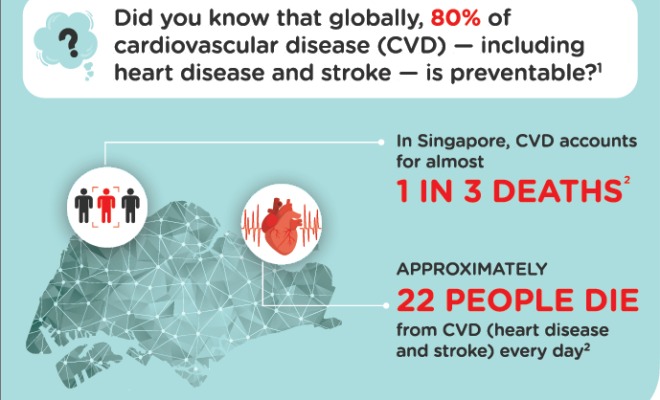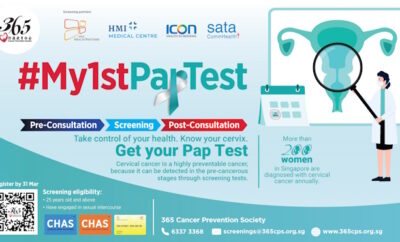
Health x Wellness
The Silent Killer: Why Singaporeans Are Taking The Wrong Approach to High Cholesterol
Cardiovascular disease accounts for nearly one in three deaths in Singapore.
A new survey reveals the shocking truth: most of us are relying on diet and exercise alone, while dangerously misunderstanding the role of vital medication.
If you think you’re safe from heart disease because you eat relatively well and hit the gym occasionally, you might be dangerously mistaken.

A new survey commissioned by Novartis and the Singapore Heart Foundation (SHF) has identified a significant, and potentially deadly, knowledge gap in how people in Singapore manage high blood cholesterol (hypercholesterolemia).
While the prevalence of high blood cholesterol has decreased slightly from 39.1 percent in 2020 to 31.9 percent in 2022 , cardiovascular disease (CVD) remains the top killer, accounting for approximately one in three deaths.
This underscores the urgent need to address common misconceptions, which are now the focus of the new “Beat the Block” education campaign launched by Novartis and the SHF.
“High blood cholesterol is silent and has no symptom,” shares Dr. Bernard Kwok, a cardiologist and Immediate-Past Honorary Treasurer of the Singapore Heart Foundation. “It can impact anyone, regardless of gender, ethnicity, or perceived fitness levels.”
The Dangerous Medication Misconceptions

The most alarming finding from the survey is the widespread belief that lifestyle changes alone are enough to combat the risk.
- A staggering 93 percent of respondents think that diet and exercise are equally as effective in lowering blood cholesterol as prescription medication.
- Despite the fact that approximately 80 percent of cardiovascular disease is preventable , only 36 percent of respondents strongly agree that high blood cholesterol requires urgent attention.
This hesitation around medication is causing serious non-compliance issues. Approximately three in ten respondents diagnosed with high blood cholesterol do not take medication.
The main reasons for this inaction are rooted in fear and misinformation:
- 72 percent believe the long-term use of statins can damage the kidneys and liver.
- 60 percent fear that the long-term use of statins could lead to a higher risk of cancer.
Even among patients who are taking medication, 37 percent report being non-compliant with their prescriptions. Their top reasons include feeling that their cholesterol levels were already under control, feeling fine despite missing doses, or concern about long-term side effects.

Action: Know Your Numbers and Your Risk
High levels of Low-Density Lipoprotein Cholesterol (LDL-C), often called “bad” cholesterol, can lead to the buildup of plaques in arteries, significantly increasing the risk of heart attacks and strokes.
Alarmingly, less than one-third of all respondents know their total blood cholesterol levels or the optimal range.
To encourage proactive management, the ‘Beat the Block’ campaign is offering a key practical tool: the Cardiovascular Risk Calculator.
This tool is built on the recalibrated Singapore-modified Framingham Risk Score (SG-FRS-2023). By inputting details like age, sex, cholesterol levels, blood pressure, and smoking status, it provides:
- An estimate of an individual’s 10-year risk of developing coronary artery disease (CAD).
- A recommended LDL-C target tailored to the user’s profile.
“Effective management includes not only lifestyle changes but also adherence to prescribed medications , crucial for controlling blood cholesterol levels and preventing complications ,” says Ms. Poh Hwee Tee, Country President of Novartis Singapore and Asian Emerging Markets.
The message is clear: regular check-ups, understanding your LDL-C target, and trusting the prescribed treatment are essential steps in protecting your heart.
Infographics provided by Novartis and the Singapore Heart Foundation.






